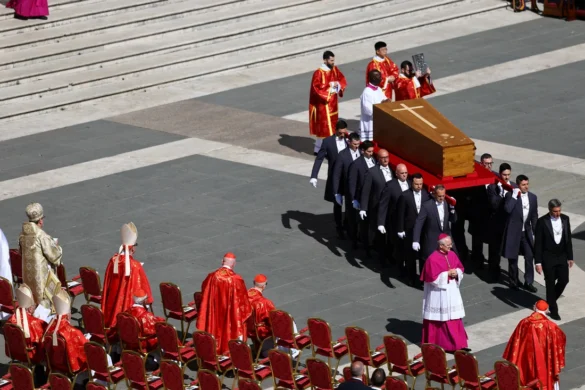Greece still seeks reparations for its victims of World War Two and repayment for a loan it was forced to make to its Nazi occupiers, President Prokopis Pavlopoulos told his visiting German counterpart on Thursday.
Pavlopoulos, who met Frank-Walter Steinmeier in Athens, said that such demands fell under the framework of “resistance against those who want to return to a nightmarish past”, hinting at the rise of the far-right in Europe ahead of EU elections.
“We consider Greece’s demands over the occupation loan and war reparations legally active and judicially claimable,” Pavlopoulos said.
Germany has apologised for Nazi-era crimes during the war but has said it is not willing to discuss reparations. It has denied owing anything to Greece for World War Two since it paid Athens the sum of 115 million deutschmarks in 1960.
Hitler’s forces occupied Greece in 1941-1944 and extracted a so-called “occupation loan” used to help finance its campaign in North Africa. Runaway inflation followed, and tens of thousands of people starved to death.
Greece was forced to hand over 476 million reichmarks, which Greek officials have estimated at 6-10 billion euros ($6.95-11.5 billion) today.
World War Two reparations resurfaced as an emotional issue during Greece’s 2010-15 debt crisis when austerity-hit Greeks, evoking past injustices, blamed their biggest creditor Germany for painful cuts associated with three international bailouts.
During World War Two, about a thousand Greek villages were razed and tens of thousands of people killed in reprisals by German troops trying to crush the Greek resistance, which had liberated large areas of the country.
Steinmeier visited the site of a Nazi concentration camp in the Athens suburb of Haidari where hundreds perished. “We honour these dead, and above all, apologise,” the German president said during a meeting with Greek Prime Minister Alexis Tsipras.
German government spokesman Steffen Seibert told a briefing on Wednesday: “We think that the issue of German reparations has been finally settled legally and politically. The Greek government has not yet officially pushed for them.”
Tsipras said that Steinmeier’s visit was a chance for a fresh start in bilateral relations, but added: “Of course, this doesn’t mean that we must forget or that we can sweep any of our differences from the distant past under the carpet.”




